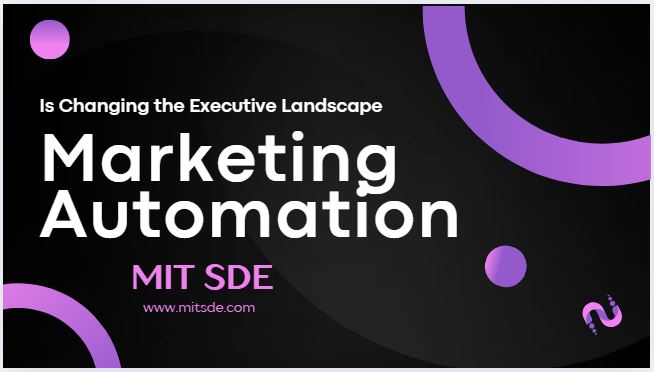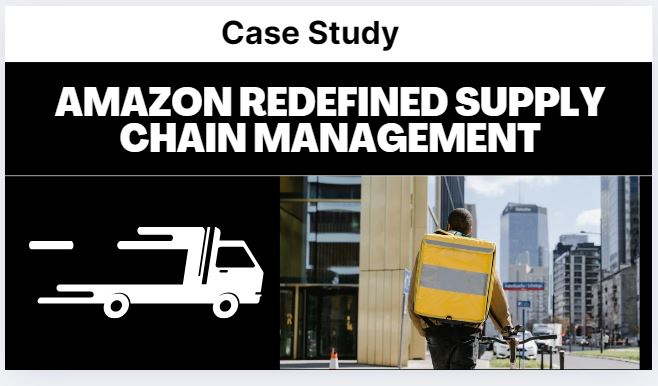
In the fast-evolving world of marketing, automation has become a transformative tool that redefines how executives approach strategy, campaign management, and customer engagement. With the rise of marketing automation tools, professionals holding a PG Diploma in Marketing or a Post Graduate Diploma in Marketing Management are finding new ways to enhance productivity, optimize customer journeys, and make data-driven decisions. Let’s explore how marketing automation is reshaping the executive landscape and why it is integral to advanced marketing studies, such as Executive Strategic Marketing Courses.
The Role of Marketing Automation in Executive-Level Strategy
For executives, marketing automation goes beyond simplifying tasks—it provides an opportunity to rethink entire workflows and focus on strategic growth. By automating repetitive tasks, marketing leaders can allocate more time to creative and analytical work, resulting in a more agile approach to marketing. Executives equipped with a Post Graduate Diploma in Marketing Management or Executive Strategic Marketing Courses are particularly positioned to leverage automation tools effectively, given their background in strategic planning, analytics, and consumer insights.
Marketing automation platforms, such as HubSpot, Marketo, and Salesforce, are integral for scaling personalized customer experiences. These platforms streamline email campaigns, social media management, lead nurturing, and customer segmentation. For instance, using customer behavior data, executives can design highly personalized marketing flows, delivering relevant content at the right time. This approach not only improves customer satisfaction but also drives higher conversion rates—an essential aspect of executive-level marketing management.
Key Benefits of Marketing Automation for Executives
Marketing automation has brought several advantages that are particularly relevant to executive roles in marketing. Here’s how it’s changing the landscape:
1. Enhanced Customer Insights
Automation tools provide deep analytics on customer behavior, preferences, and purchasing habits. These insights allow executives to craft data-driven strategies that align with customer expectations, an area extensively covered in Executive Strategic Marketing Courses. By leveraging this data, leaders can make well-informed decisions that directly impact brand positioning and customer loyalty.
2. Efficiency in Campaign Execution
With the help of automation, campaigns that once required multiple teams and long hours can now be deployed in minutes. This streamlined process enables executives to run A/B tests, tweak campaign elements, and optimize for performance without consuming excessive resources. Courses like the PG Diploma in Marketing train professionals to use these tools efficiently, ensuring that marketing efforts are both effective and economical.
3. Scalability and Consistency
For businesses expanding into multiple markets, automation tools help maintain a consistent brand voice and messaging across regions. Executives responsible for overseeing multi-channel campaigns can ensure that all customer touchpoints align with brand standards, a key topic in any Top Online PGCM Digital Marketing course. This ability to scale operations without sacrificing quality is invaluable for modern marketing leaders.
4. Advanced Customer Segmentation and Personalization
Marketing automation allows executives to categorize customers into specific segments based on data such as demographics, behavior, and previous interactions. Personalized marketing has become a standard expectation, and automation makes it feasible on a large scale. Post Graduate Diploma in Marketing Management programs emphasize the importance of segmentation as a foundation for effective strategy, making graduates well-suited to drive these initiatives in their organizations.
5. Enhanced ROI through Performance Tracking
Every action taken through automation platforms is trackable, making it easier for executives to measure campaign effectiveness and calculate return on investment (ROI). Using dashboards and analytics provided by automation tools, executives can refine their strategies, discontinue underperforming campaigns, and allocate resources to high-yield channels. Executive Strategic Marketing Courses cover these analytical skills, helping marketing leaders use data to maximize ROI.
Must-Have Marketing Automation Tools for Executives
For professionals with a PG Diploma in Marketing or those pursuing a Post Graduate Diploma in Marketing Management, understanding the array of available automation tools is essential. Here’s a look at some top tools that are shaping the executive landscape in marketing:
HubSpot: Known for its CRM and marketing automation capabilities, HubSpot is ideal for customer journey mapping, email campaigns, and lead nurturing.
Marketo: Preferred by B2B marketers, Marketo specializes in lead management and account-based marketing, making it a robust tool for executives managing complex sales cycles.
Salesforce Pardot: This tool offers extensive capabilities for lead generation, qualification, and scoring, helping marketing executives streamline the lead-to-sales handoff.
Hootsuite and Buffer: For social media automation, these platforms provide scheduling, engagement tracking, and social listening, allowing leaders to manage brand presence across channels.
Each of these tools supports the strategic objectives taught in Executive Strategic Marketing Courses, emphasizing how automation integrates with broader marketing strategies.
Marketing Automation in the Curriculum: Preparing for an Automated Future
For professionals pursuing a Post Graduate Diploma in Marketing Management, Executive Strategic Marketing Courses, the curriculum is increasingly focusing on automation technology and its applications. These programs prepare students to lead automated marketing initiatives by combining technical skills with strategic insights.
Students learn how to set up automated workflows, interpret data analytics, and refine campaigns based on real-time metrics, ensuring they are equipped to thrive in executive roles. As automation continues to drive transformation in marketing, understanding these tools and strategies is no longer optional but essential for career growth.
The Future of Marketing Automation: Trends to Watch
The landscape of marketing automation is still evolving, with new advancements shaping the future:
AI and Machine Learning Integration: Automation tools are becoming more intelligent, using machine learning to predict customer behavior, optimize content, and personalize interactions in real-time.
Cross-Channel Automation: As consumers interact across multiple platforms, automation tools are enhancing their cross-channel capabilities, allowing seamless integration from email to social media to websites.
Increased Focus on Customer Experience (CX): Modern automation emphasizes not just task efficiency but also delivering a superior customer experience. Executives trained in Executive Strategic Marketing Courses are well-prepared to leverage these tools to elevate CX.
Conclusion
Marketing automation has fundamentally changed how executives approach strategy, analytics, and customer engagement. For those with a PG Diploma in Marketing or a Post Graduate Diploma in Marketing Management, mastering these tools is key to advancing in the field. By automating repetitive tasks and utilizing advanced analytics, executives can focus on higher-level strategic decisions, driving growth and innovation.
In an increasingly data-driven world, automation is no longer a competitive advantage but a necessity for staying relevant. The combination of automation skills and strategic marketing expertise will continue to shape the future of the executive marketing landscape, making advanced marketing courses an invaluable asset for aspiring leaders.


